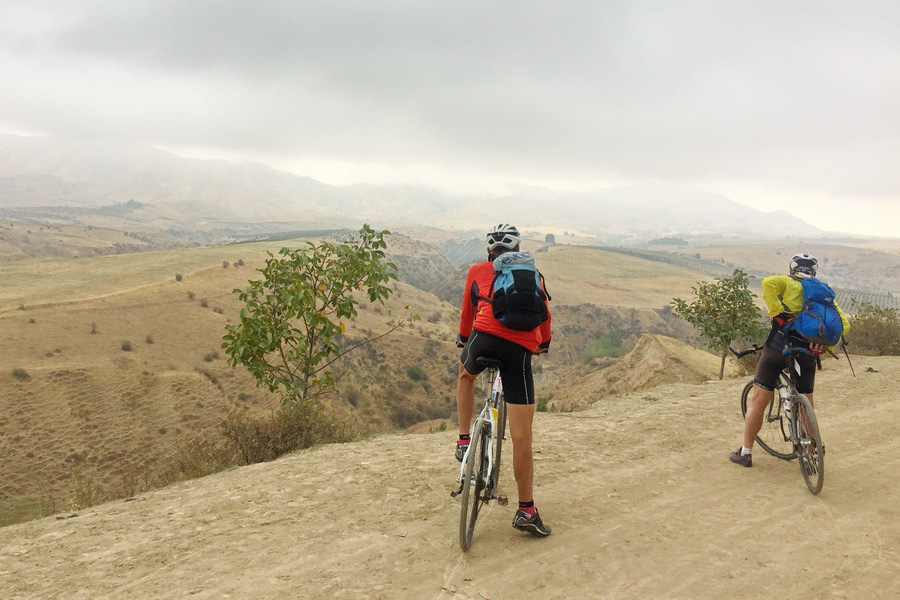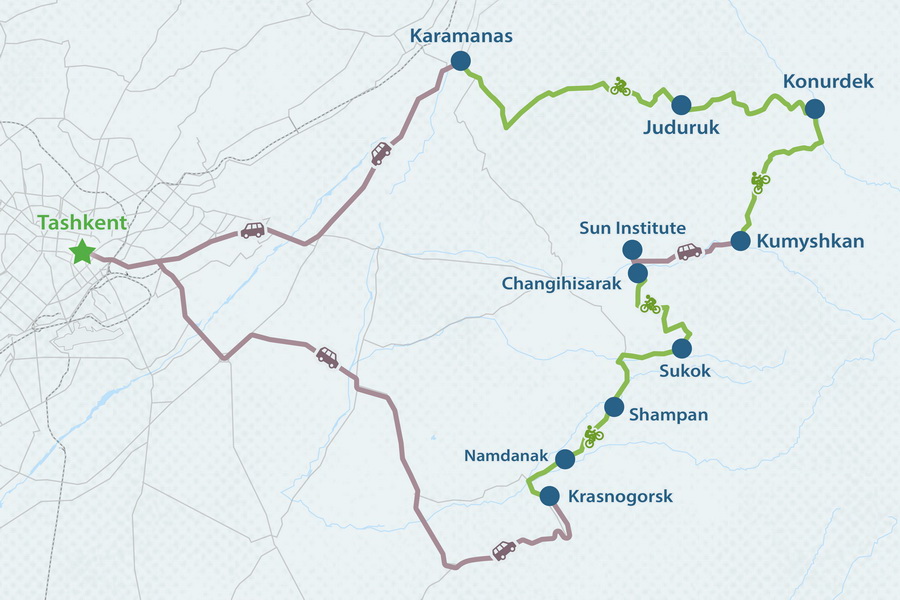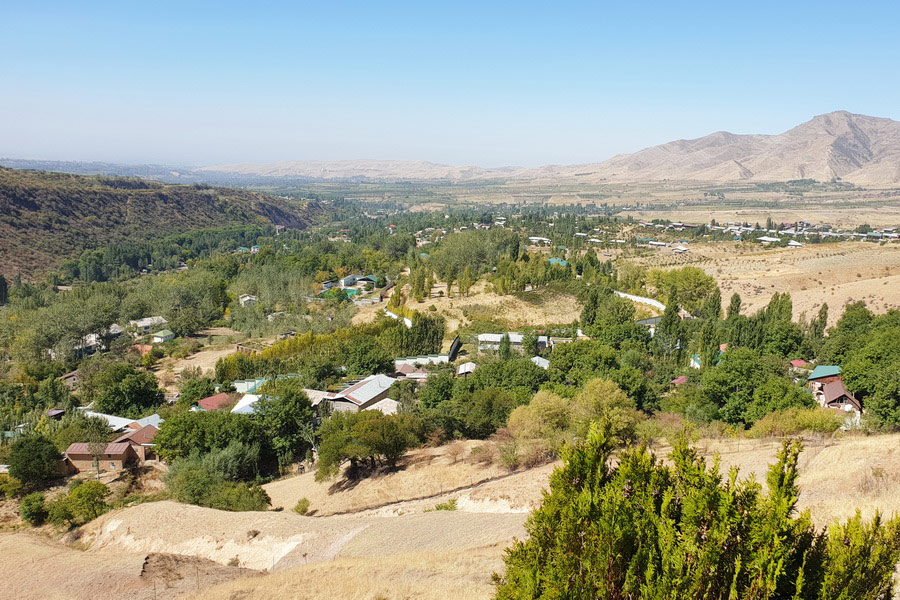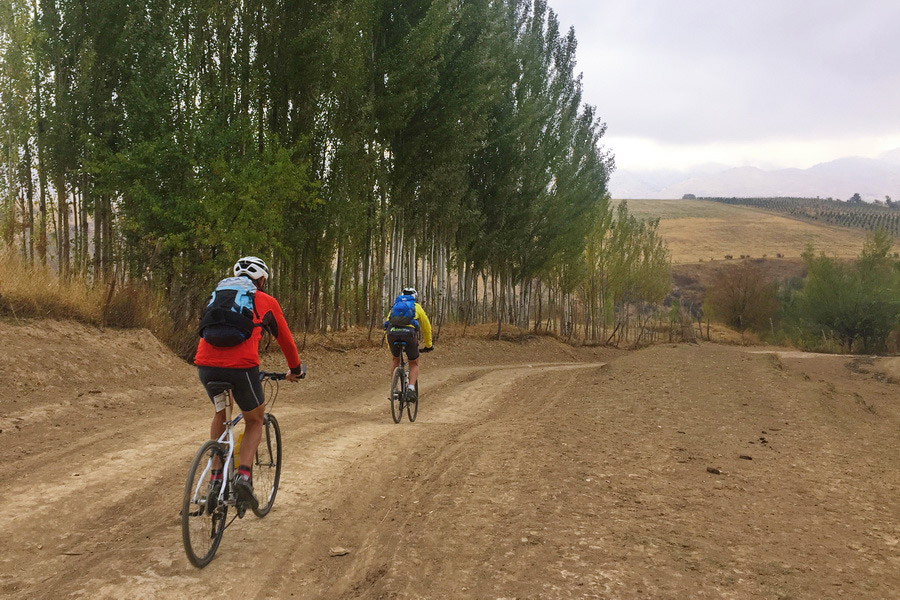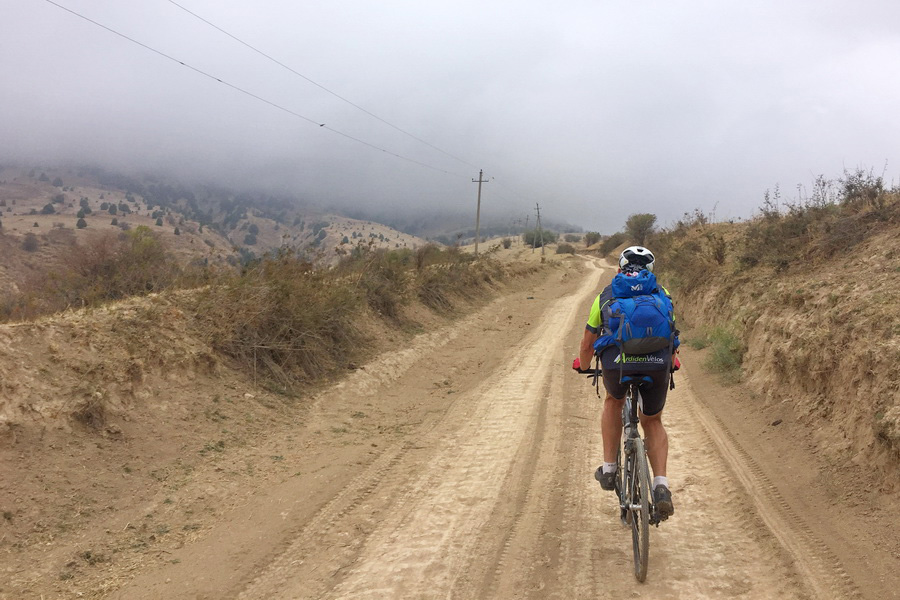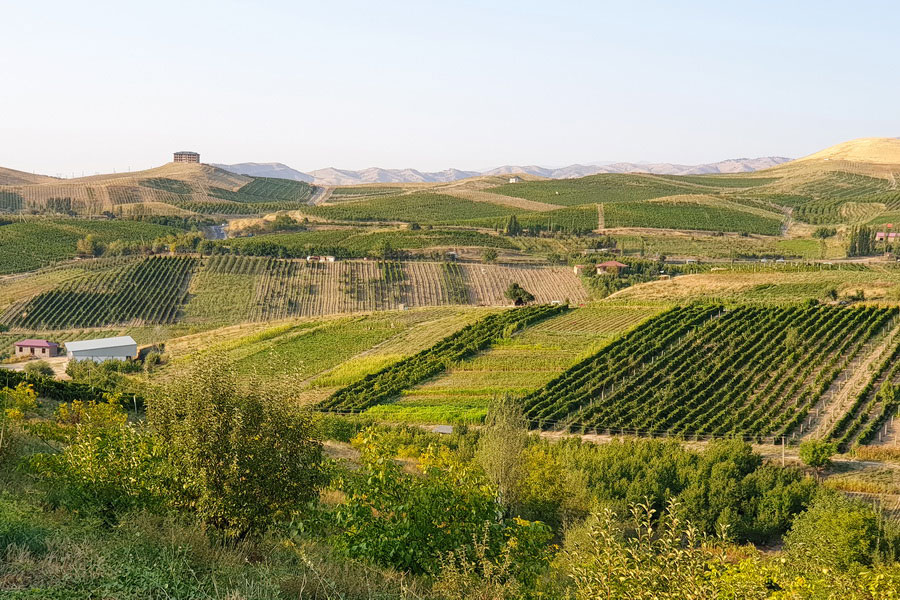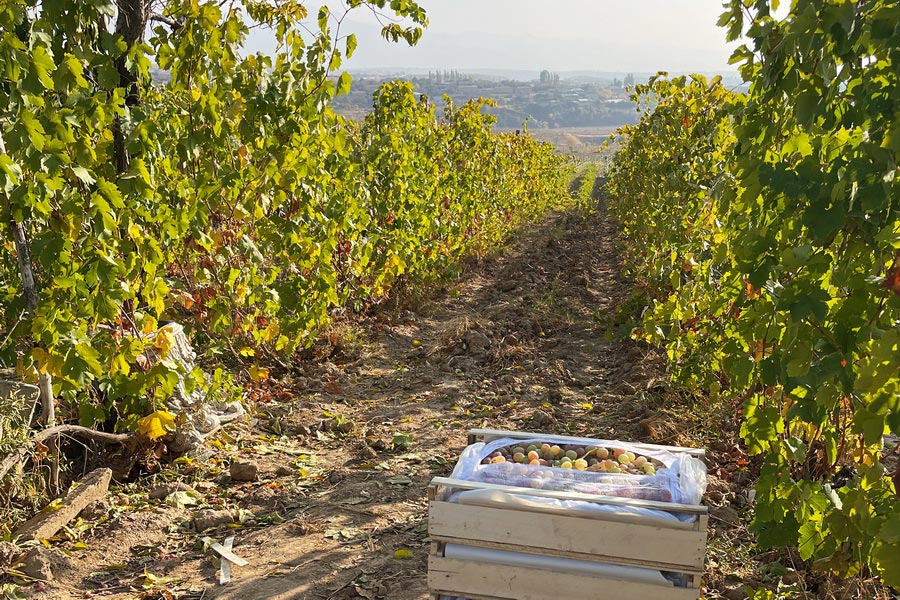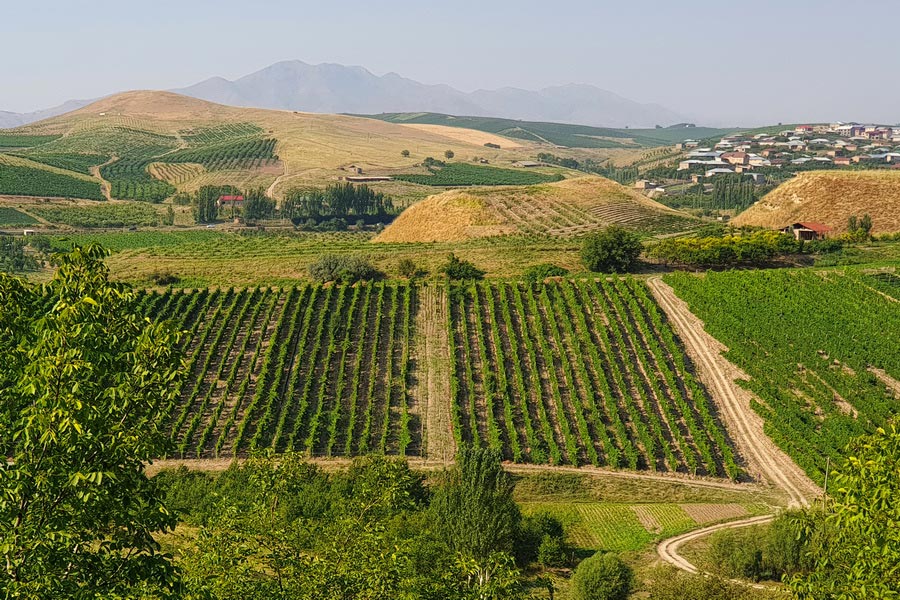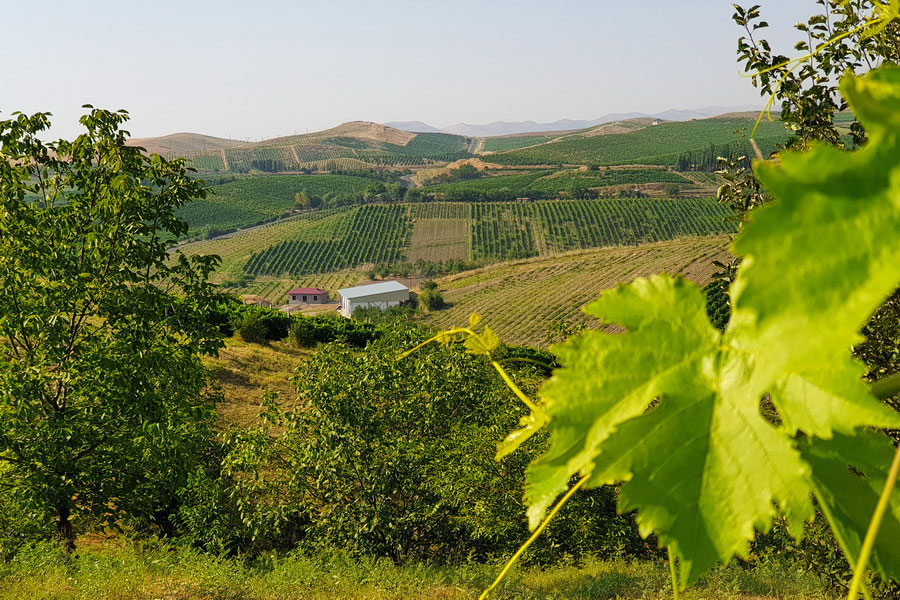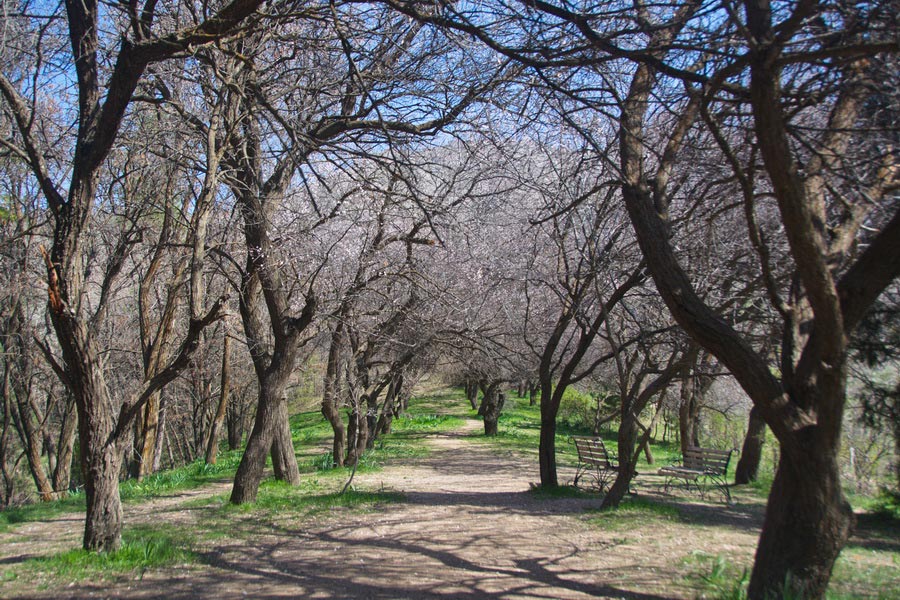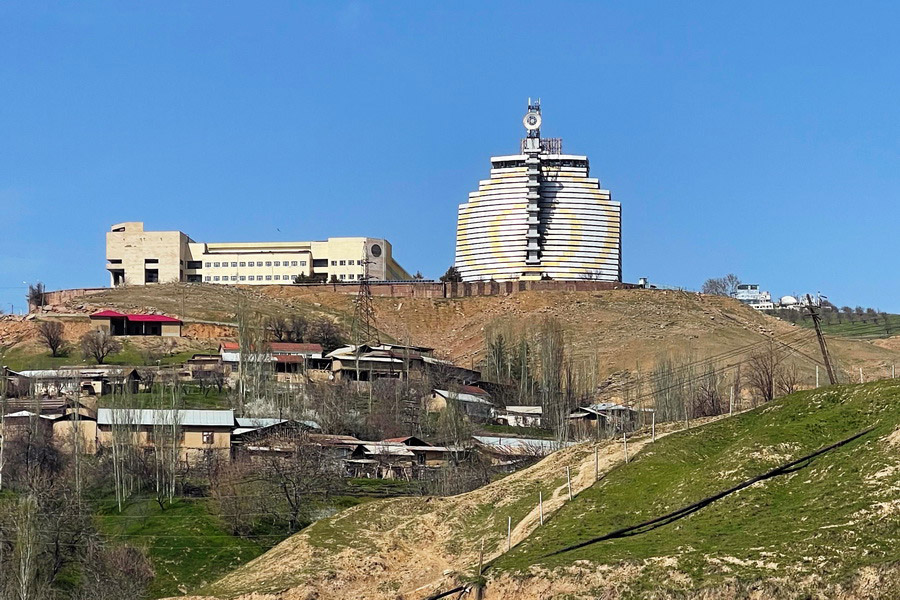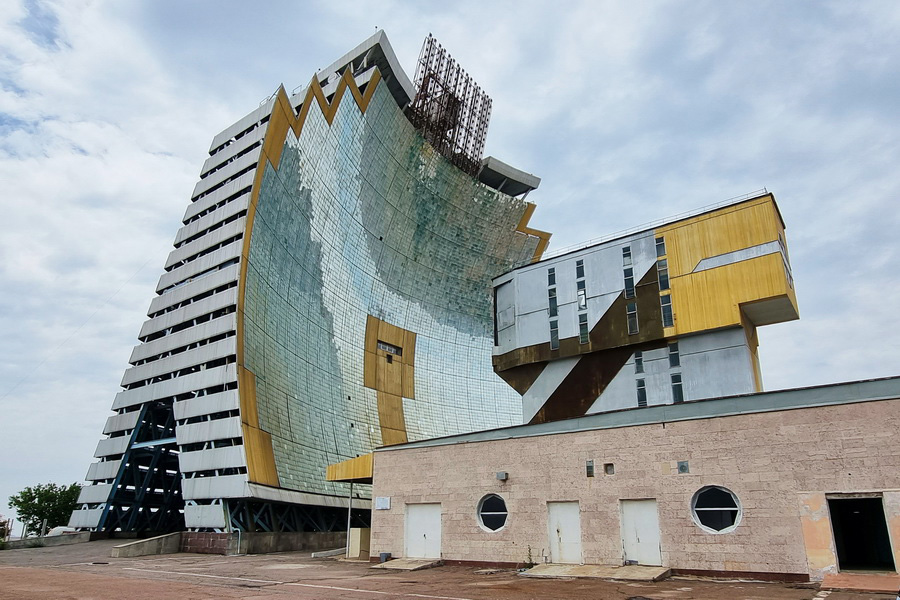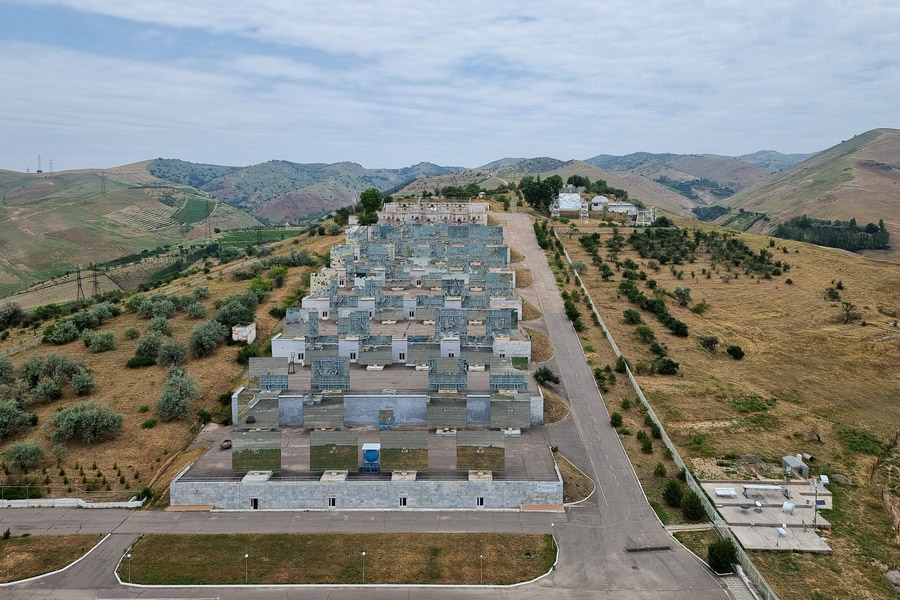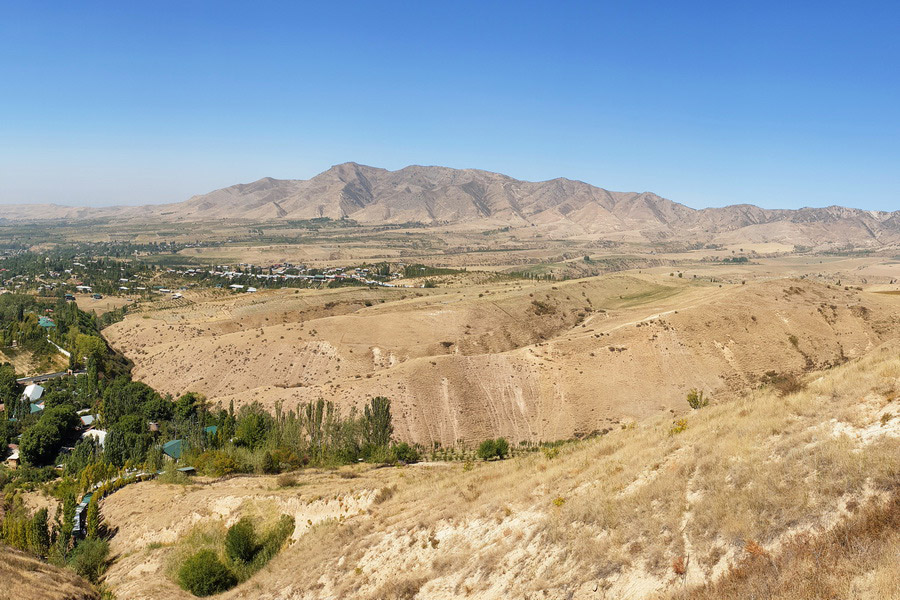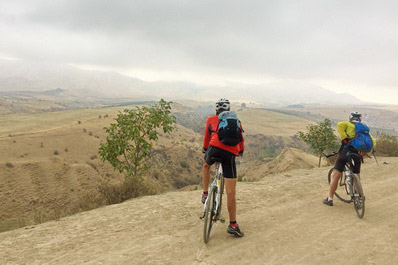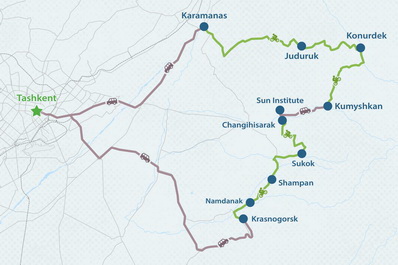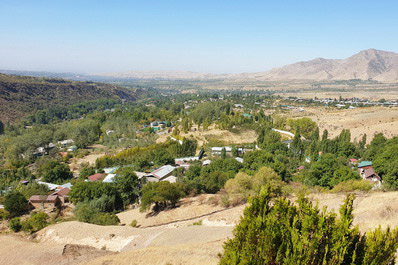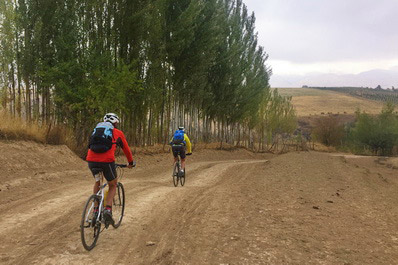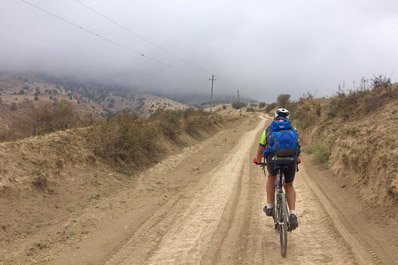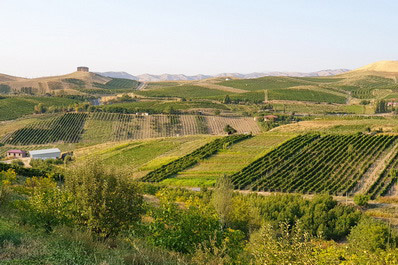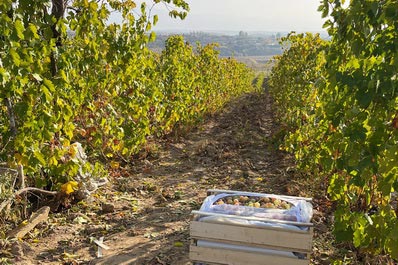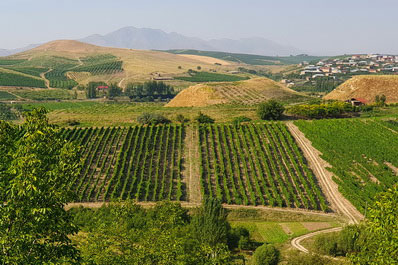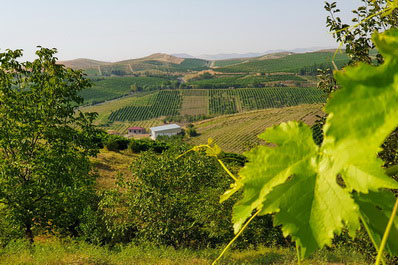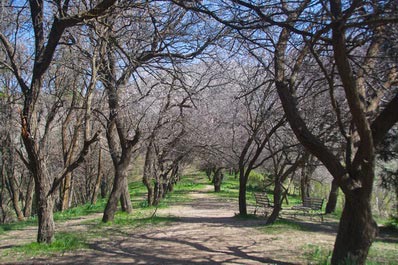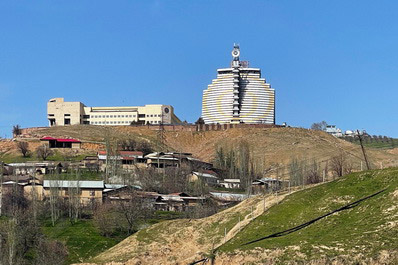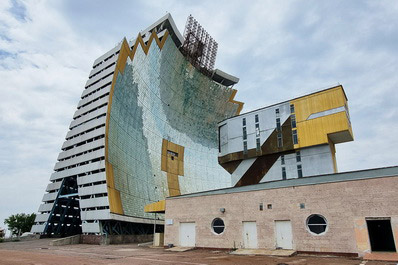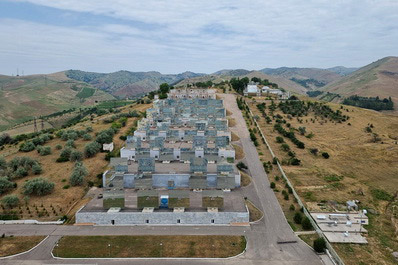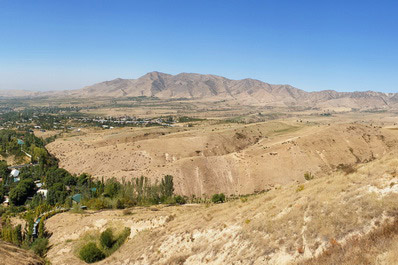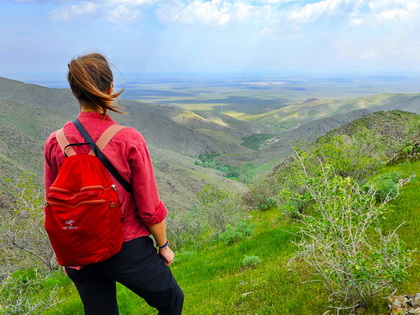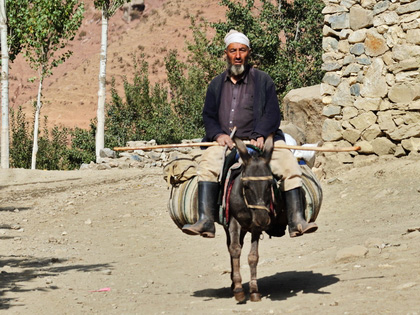The tour runs from mid-April to the end of October.
Group size: 5 - 12 people
Enjoy an exciting cycling adventure through Parkent, a scenic region near Tashkent known for its vineyards. With our 2-days cycling tour in Parkent ride through rolling hills, lush vineyards, and charming villages, with breathtaking views at every turn. Test your endurance on this 90 km, two-day journey featuring gentle climbs, flat stretches, and a 5 km ascent offering stunning panoramas of the Tien Shan Mountains and Tashkent below. Our two-day cycling tour in Uzbekistan not only promises unforgettable experiences but also supports local communities and promotes sustainable tourism.
Tour itinerary:
Your first stop is Krasnogorsk, a former mining town with a rich history of uranium extraction in the mid-20th century. Continue to the village of Shampan, named after the famous French region Champagne for its extensive vineyards. Then ascend to the mountainside village of Sukok, home to a forestry centre with lush coniferous trees. Enjoy lunch at a local café in Sukok and sample authentic Uzbek cuisine.
After lunch, cycle through picturesque vineyards and mountain scenery to the village of Zarkent. The ride ends with a descent to the village of Changikhisarak. From there, transfer by car to the nearby Sun Institute, a fascinating scientific site. After the tour, drive to your hotel in the village of Kumyshkan (10km, 10 minutes). Dinner. Overnight at the hotel.
Cycling distance: 40 km (90 % asphalt, 10 % dirt); ascent 755 m, descent 709 m
Meals: lunch, dinner
Upon reaching the border of the hunting ground, you will stop for a picnic lunch, offering a break before the most challenging part of the cycling tour – a demanding 5-kilometre climb up the slopes of Mount Surenata, with an elevation gain of 400 metres. The effort is rewarded with a breathtaking view of Big Chimgan Mountain to the east and the sprawling metropolis of Tashkent across the wide valley to the west. An additional reward awaits in the form of a long, scenic descent past rolling hills, leading to the village of Karamanas on the outskirts of Chirchik.
In Karamanas, you will transfer to a car for the final leg of the journey to Tashkent (40 km, 1 hour). Arrival in the city. End of the 2-day Cycling Tour in Parkent.
Cycling distance: 50 km (70% asphalt, 30% dirt); ascent 985 m, descent 1655 m
Meals: breakfast, lunch
Price includes:
- Bicycle rental and spare parts;
- Special vehicle for transporting bicycles;
- English-speaking bike guide and bike mechanic;
- 1 night in a hotel (double rooms);
- Entrance tickets to the Sun Institute and Sukok Forest;
- Meals: 2 lunches, 1 dinner, 1 breakfast;
- Comfortable minibus transfers with luggage;
- Bottled water during the bike ride.
Price doesn't include:
- International flights;
- Alcoholic and other beverages (beer, wine, Coca-Cola);
- Additional hotel services;
- Tips for guides and drivers;
- Medical insurance.
Special details:
Total distance cycled: 90+ kilometres.
Gain in altitude: variable, designed for cyclists in good physical shape.
Bicycle models are available for the duration of the tour: CANNONDALE TRAIL 5 (29") TYPE, 10 speeds
TRINX 48A / 500W TRINX electric bike, 10 speeds (15-20 USD per person, depending on the number of participants).
Bicycle sizes are adapted to the physique of the participants (small, medium and large).
Responsible Cycling Tourism: A Path to Sustainable Development
Benefits of Cycling Tourism
- Health and Well-being. Cycling is not only a form of transportation but also an excellent way to boost physical health and mental well-being. The moderate physical activity associated with cycling can reduce stress, enhance cardiovascular health, and improve overall fitness levels.
- Environmental Impact. By choosing to cycle rather than using motorized transport, tourists reduce their carbon footprint. This eco-friendly mode of transport helps decrease air pollution and minimizes the negative impacts associated with traditional tourism, such as congestion and habitat destruction.
- Community Engagement. Cycle tourism often leads tourists to less-traveled paths and rural areas, fostering a deeper connection with local communities. Tourists interacting with locals, whether through farms, markets, or community events—can enhance cultural exchange and contribute to the preservation of local customs and practices.


